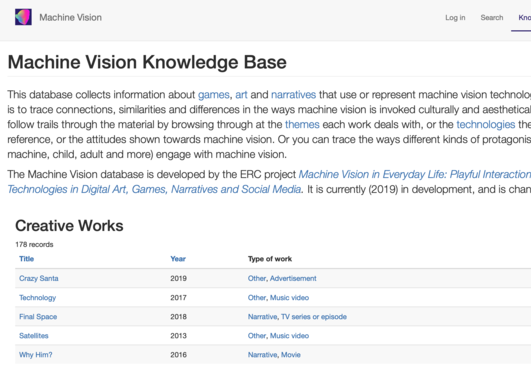Apertures #4: Datasets with Caroline Sinders & Toril Johannessen
The Machine Vision in Everyday Life research project welcomes Caroline Sinders and Toril Johannessen to discuss the labour of assembling datasets for machine learning.

Hovedinnhold
Datasets used to train artificial intelligence profoundly shape how machines perceive the world. In the past years an increasing number of studies have made it clear that: training sets lack in diversity, they are collected without consent, labelled in exploitative working conditions, and according to problematic classification schemas. Can we do things different?
In this seminar we explore what a Feminist Data Set is. What it takes to collect a dataset in an ethical way. How to think about bias using machine learning algorithms to visualize the citizens of Bergen. And if an intersectional feminist AI is even possible?
Apertures is a series of seminars organized by the Machine Vision in Everyday Life research project. This one-hour video seminar features fifteen-minute talks by two artists familiar with machine learning, followed by a discussion between presenters, the research project team, and the audience.
Caroline Sinders is a machine-learning-design researcher and artist. For the past few years, she has been examining the intersections of technology’s impact in society, interface design, artificial intelligence, abuse, and politics in digital, conversational spaces. Sinders is the founder of Convocation Design + Research, an agency focusing on the intersections of machine learning, user research, designing for public good, and solving difficult communication problems. As a designer and researcher, she has worked with Amnesty International, Intel, IBM Watson, the Wikimedia Foundation, and others.
Toril Johannessen is an artist who lives and works in Bergen. The impact of historical conditions and technological developments on perception and representation are recurring themes in her artistic practice. Combining historical records with her own investigations and collection of data, and with an attention to how science coexists with other systems of knowledge and belief, her works often have elements of storytelling in visual or written form.
https://www.toriljohannessen.no/


